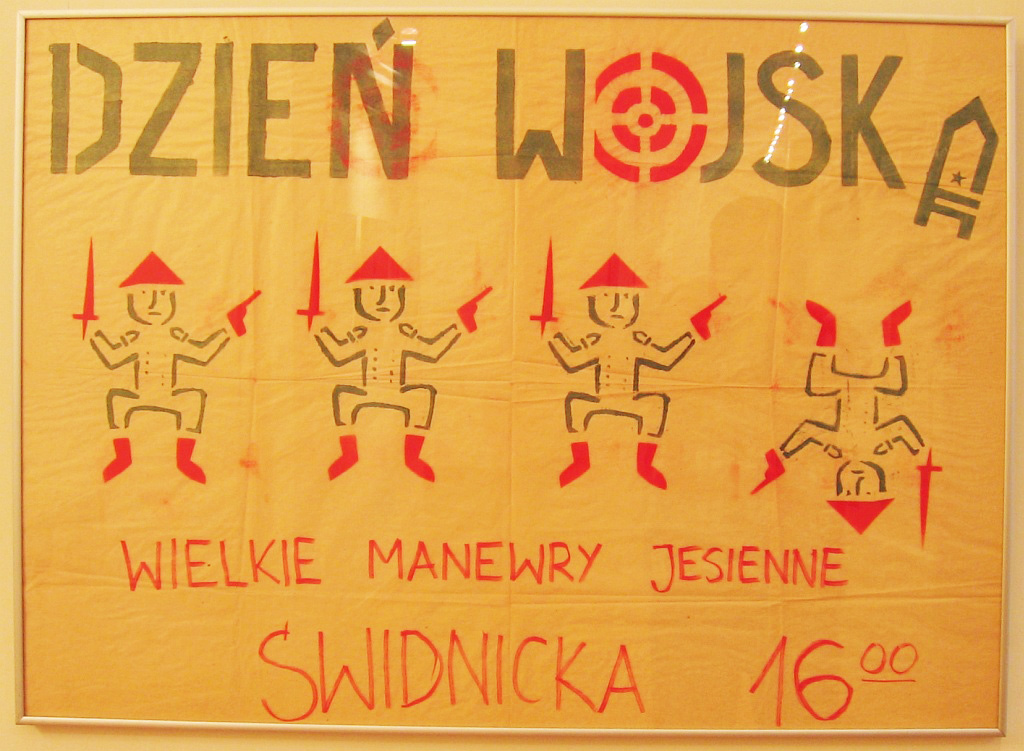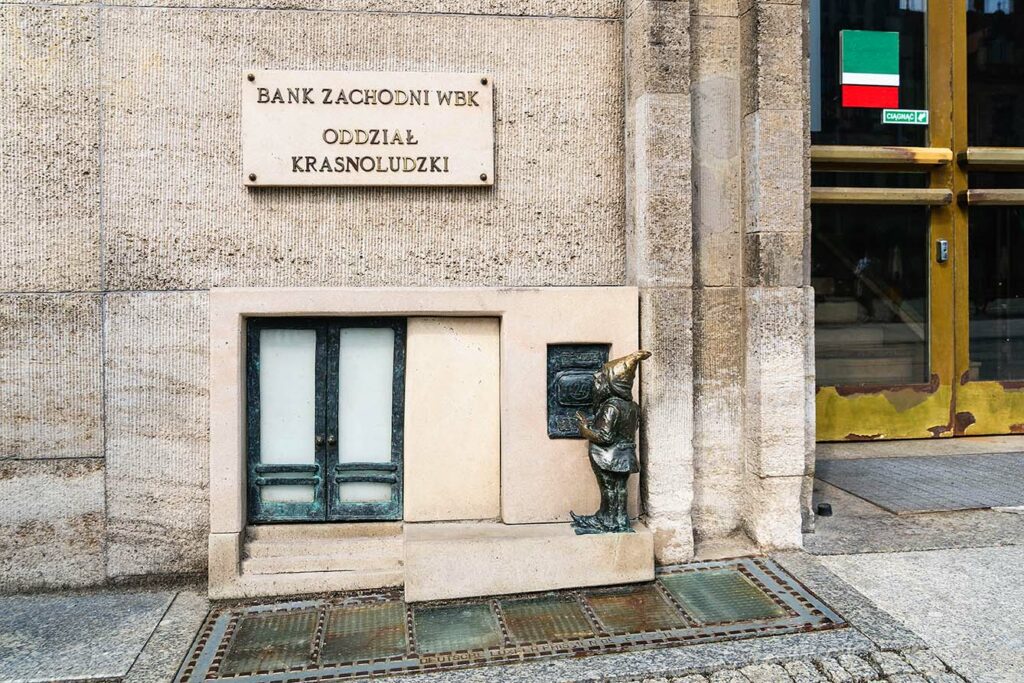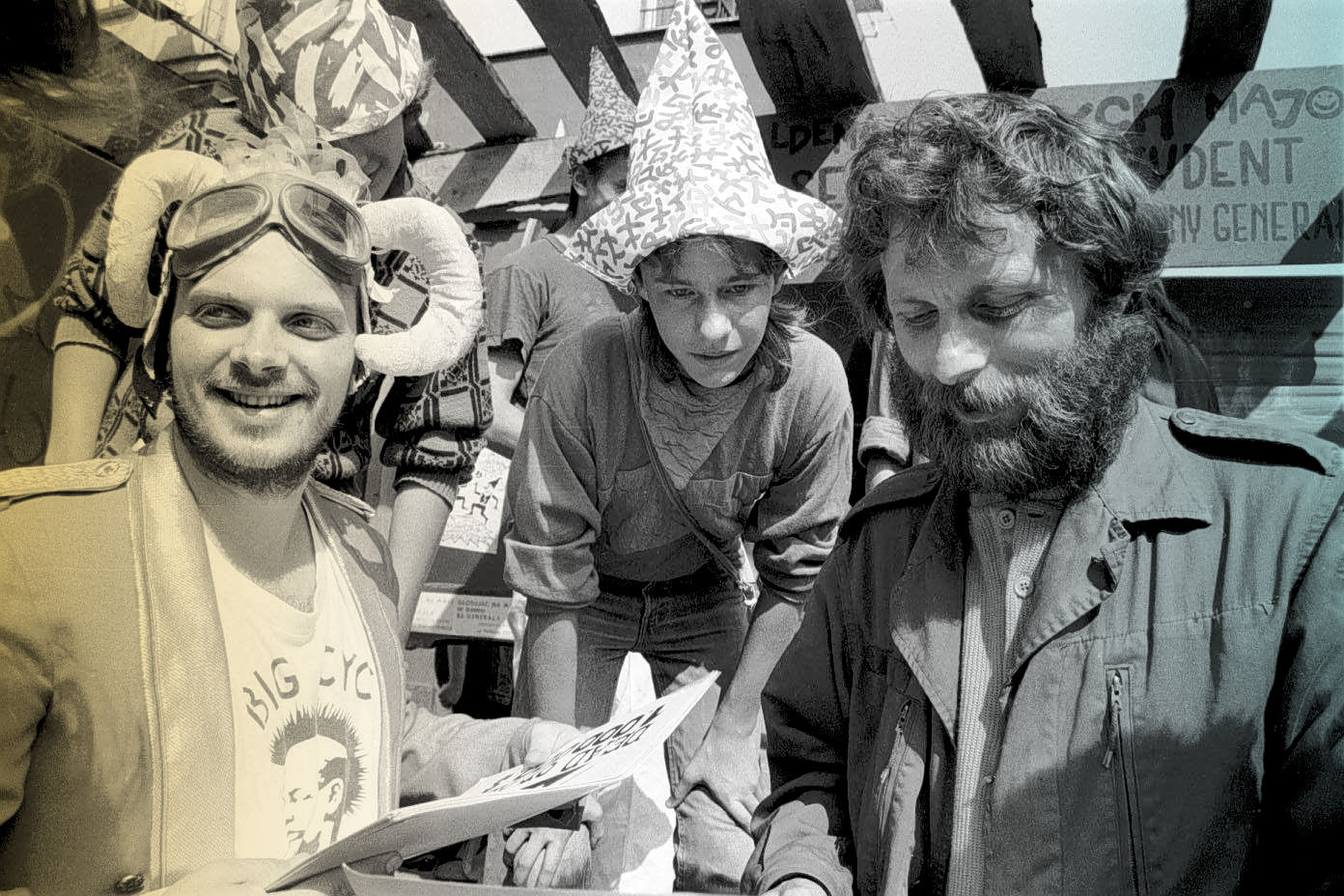One of the best urban games in Central Europe is playing hide-and-seek with Wrocław’s dwarves. Today, you can find flower-selling dwarves in Solny Square, where you can buy fresh-cut flowers even late at night. There are dentist-dwarves, invited by doctors. There are banker dwarves and even ATM-guarding dwarves. Some are fit, some are drunk, some are lazy – dwarves in Wrocław come in all styles.
These 30-centimeter-tall bronze sculptures can be found all around the city, representing its cultural and industrial complexity and putting a smile on the faces of people who encounter them. These days, any person in the town with a plot of land can have a dwarf of their own, no permit necessary. As of late 2020, there were already about 360 figures around Wrocław. You can even trace them using an interactive map.
Pomarańczowa alternatywa: fairy-tale communist opposition
However, this vast network of mythical creatures wouldn’t have been possible without social mobilization in the 1980s. Wrocław’s official tourism website tells the story of the ancient dwarves from the Odra River who played pranks across the city. Though it sounds like a pure fairy tale, the story has more truth to it than you might expect. Yup, you heard it right: there were actually dwarves in Wrocław that used to play pranks – except that it was not in ancient times, just back in the 1980s.
The real dwarves were just people in disguise – specifically, members of the Orange Alternative (Pomarańczowa Alternatywa), an artistic-dissident organization led by Waldemar “Major” Frydrych (to whom the quote above is attributed). Inspired by the Dutch anticapitalist movement of the 1960s, Frydrych began to paint dwarves on the walls of Wrocław. The group’s actions were surrealist in nature and focused on exposing the self-importance and absurdity of those in power in the hopes of inspiring independent thought – an unwelcome concept in the communist landscape of the time.


The idea that socialist surrealism could threaten communist rule was not the most obvious choice for a movement, but it ended up having a lasting effect. For example, when toilet paper was scarce during the economic crisis of the 1980s, some members organized public toilet paper giveaways, tacitly expressing the scale of the situation.
Policing the dwarves in Wrocław
And in 1987, for the first time, the Orange Alternative (“Pomarańczowa Alternatywa”) “invited” policemen to their happening. By “invitation,” we don’t mean to say that they reached out to the police with an actual invitation. It’s more that they began to organize ever-growing demonstrations that prompted their attendance – and usually culminated in the arrest of participants dressed in some ridiculous manner. Like when they provoked the Communist police to arrest 77 people dressed as Santa.
However, the pièce de résistance was a 1988 demonstration where they encouraged 10,000 people to attend dressed as dwarves, complete with orange pointy hats. This spectacle led law enforcement to chase after and arrest the group’s members. It created an absurd visual with police running after dwarves and turned the socialist police into an international laughing stock, with foreign press broadcasting scenes of the event around the world. After their actions, we all will remember communist police as persecutors of mythical creatures.
One of their slogans was, “There is no freedom without dwarves.” Now the dwarves that dot the streets of Wrocław serve as an adorable yet potent reminder of how true that statement was in 1980s Poland.







